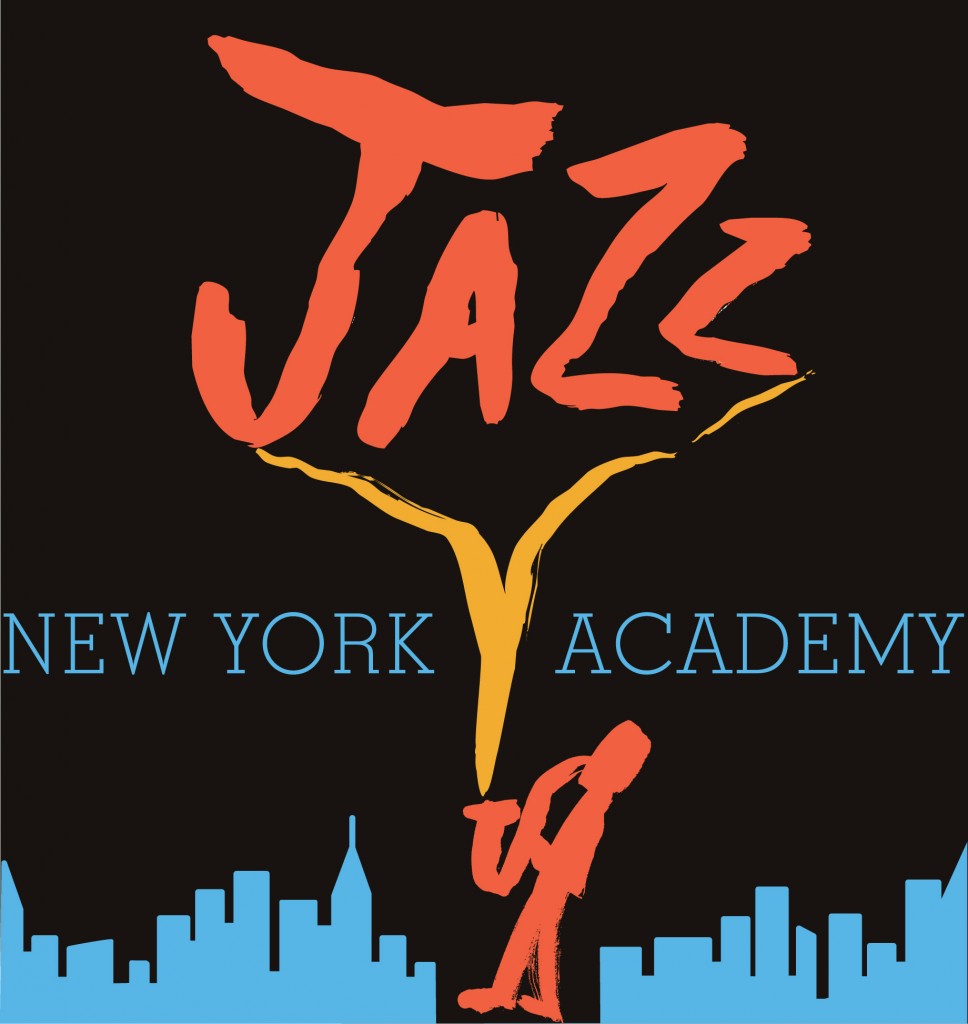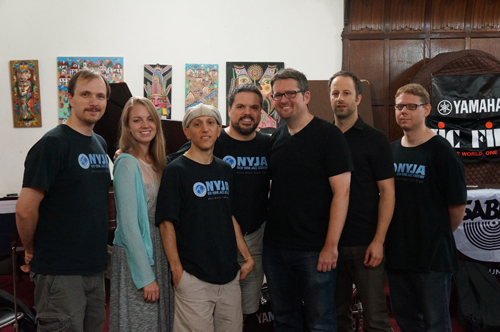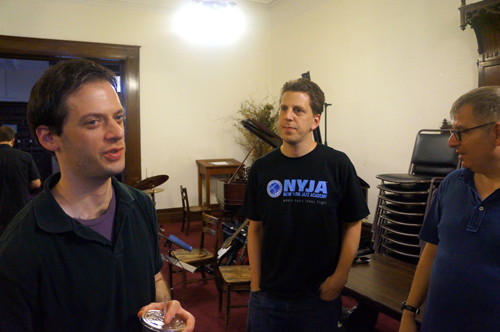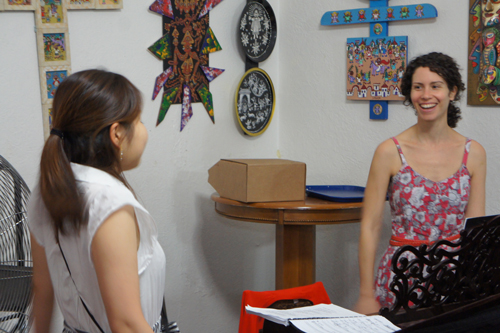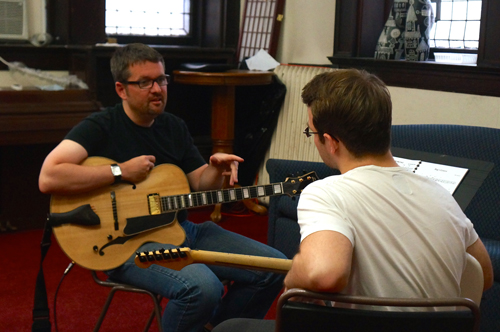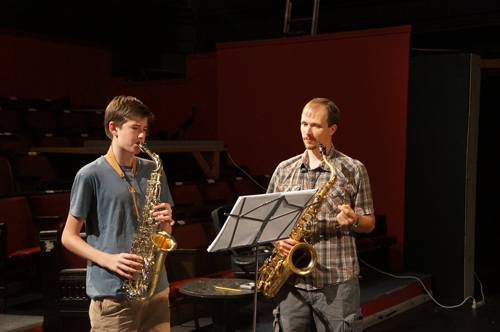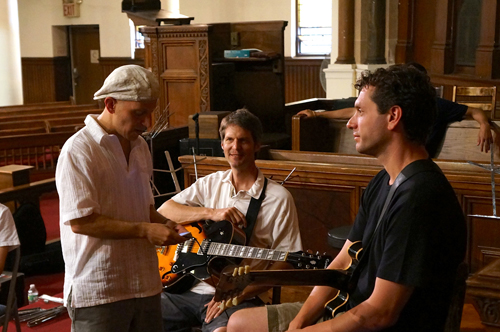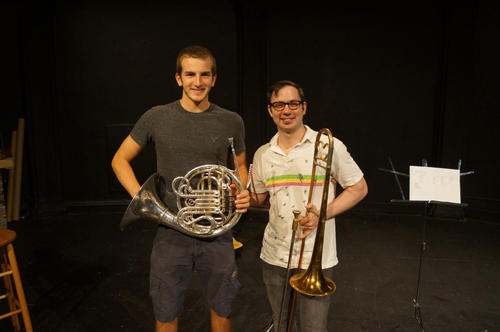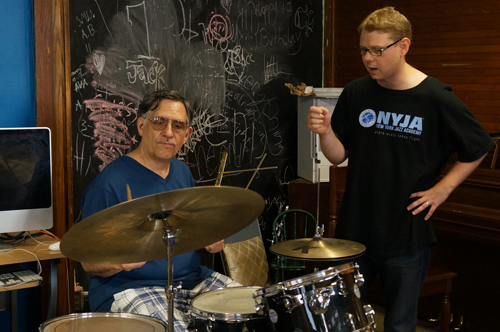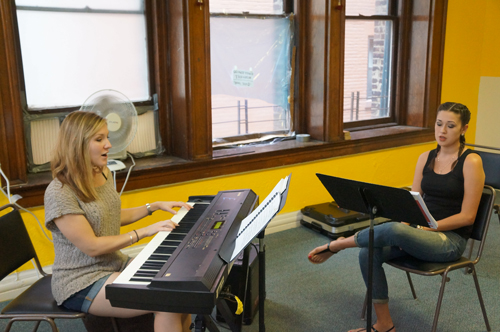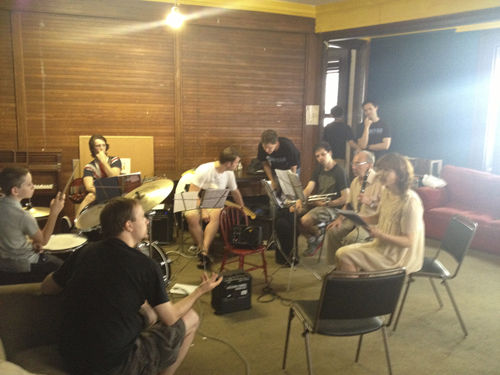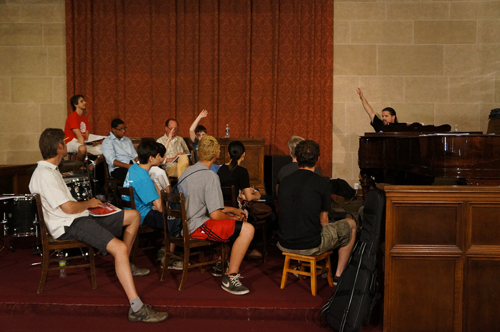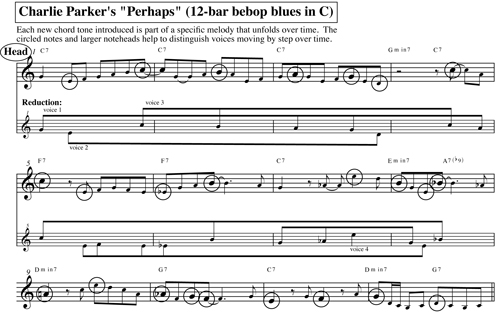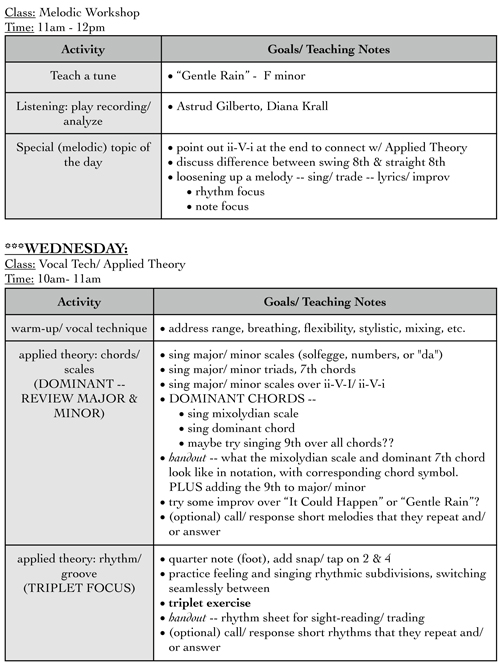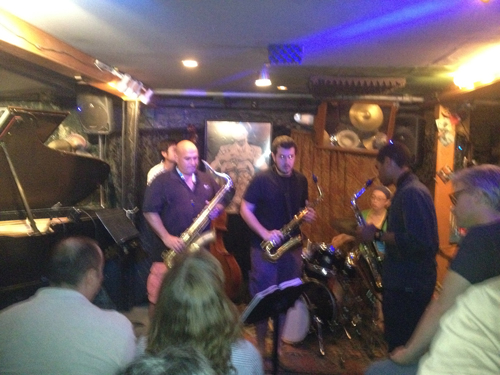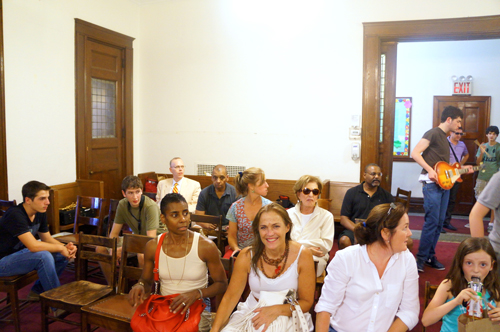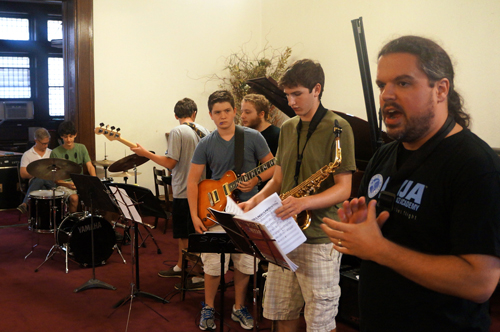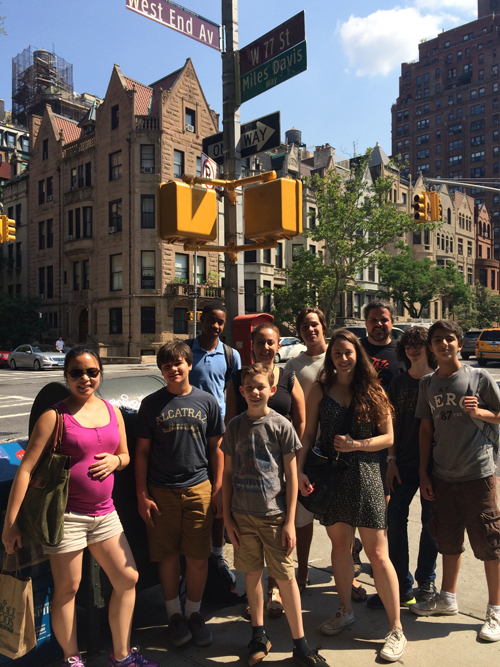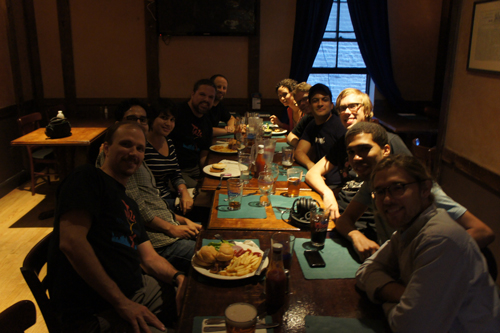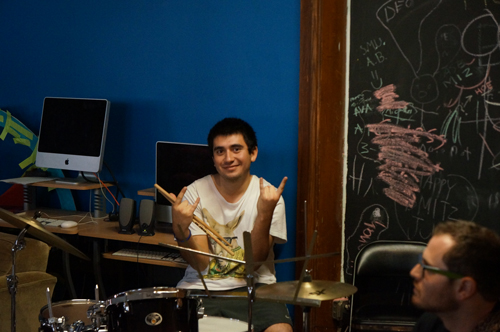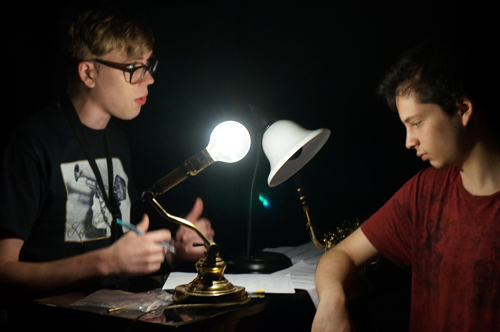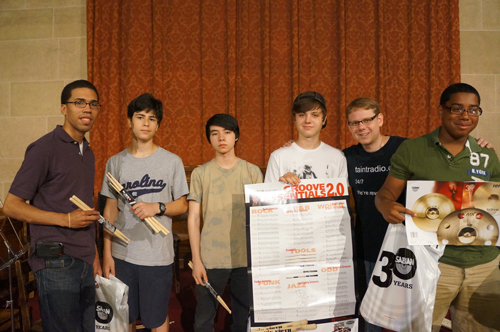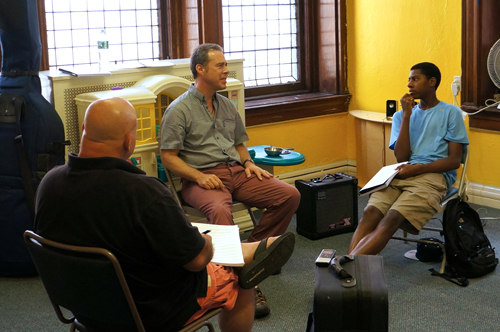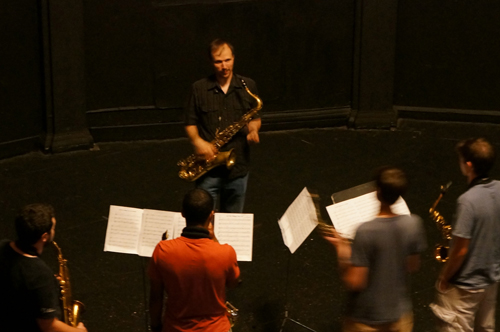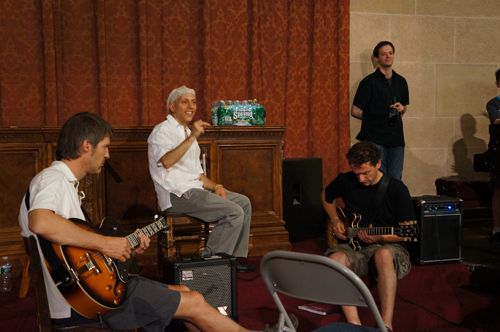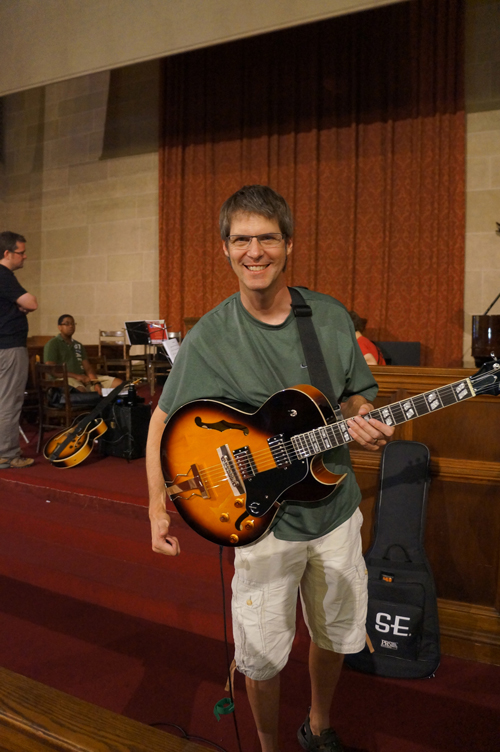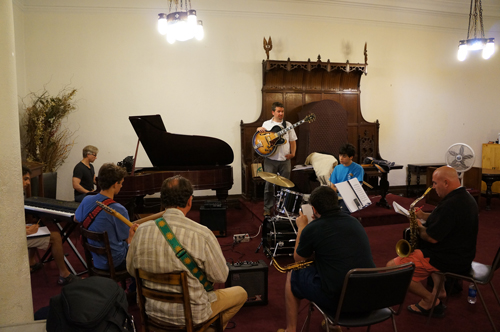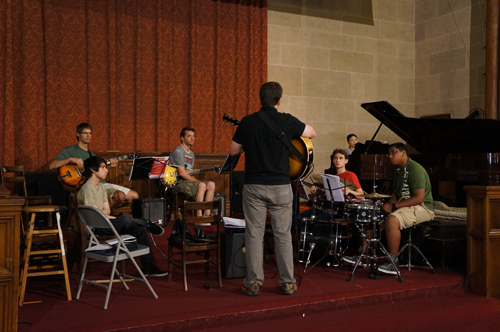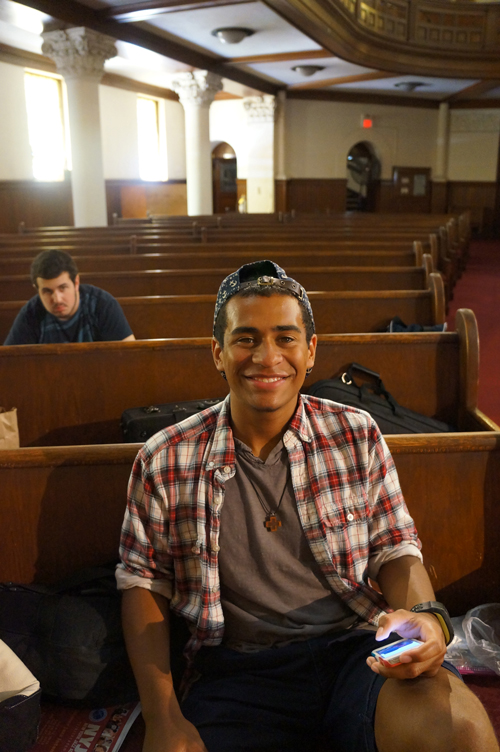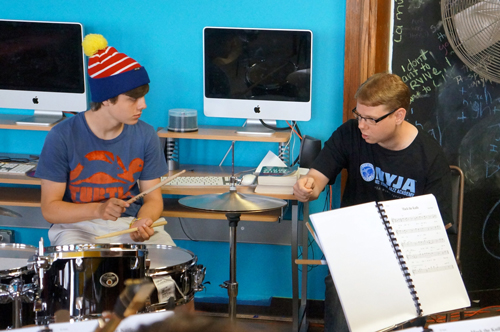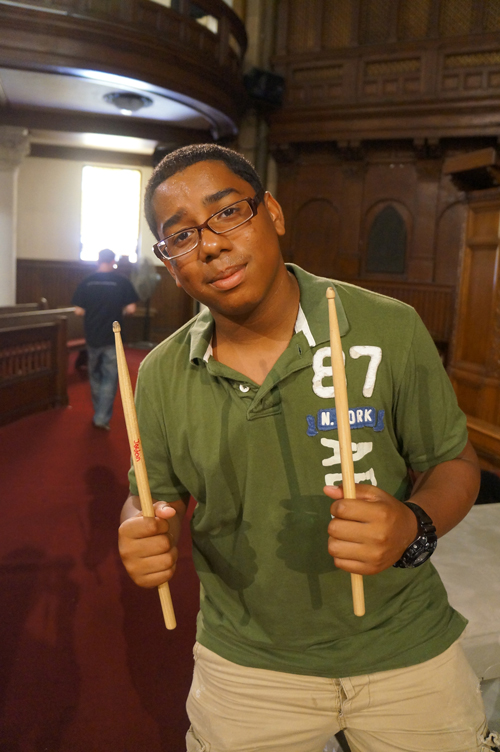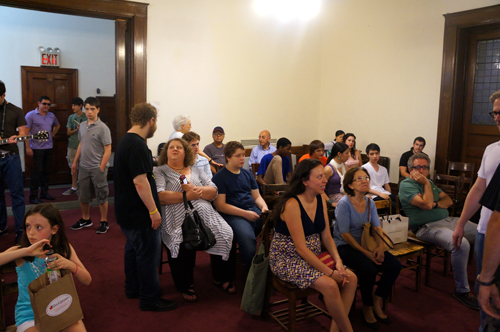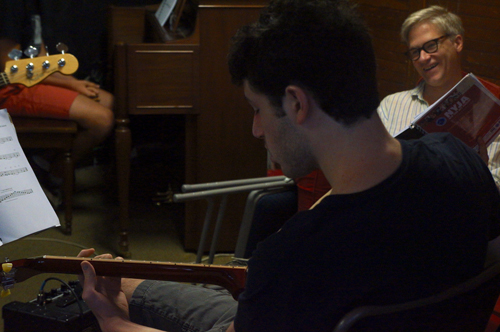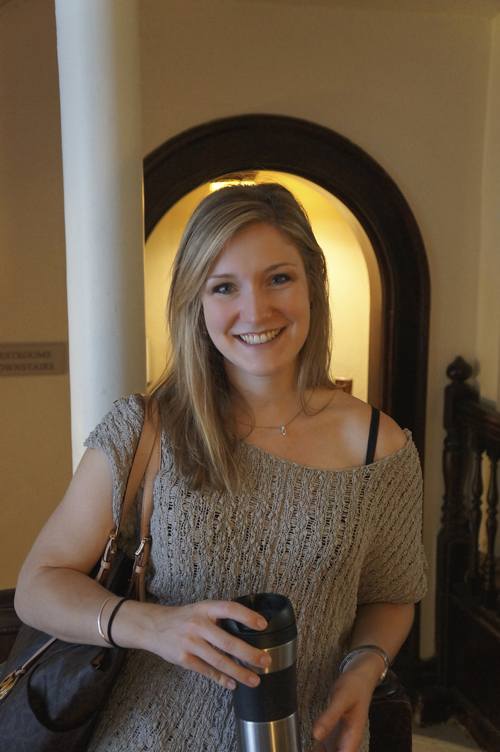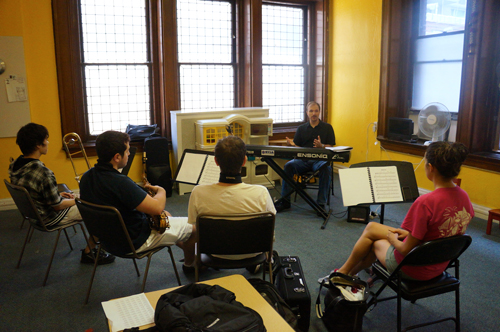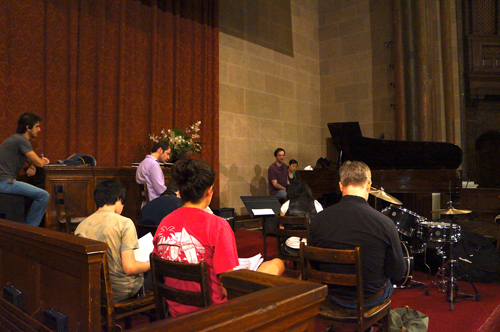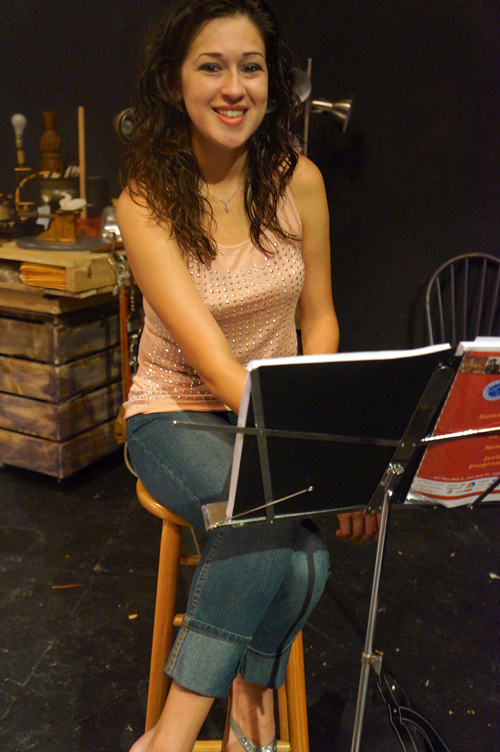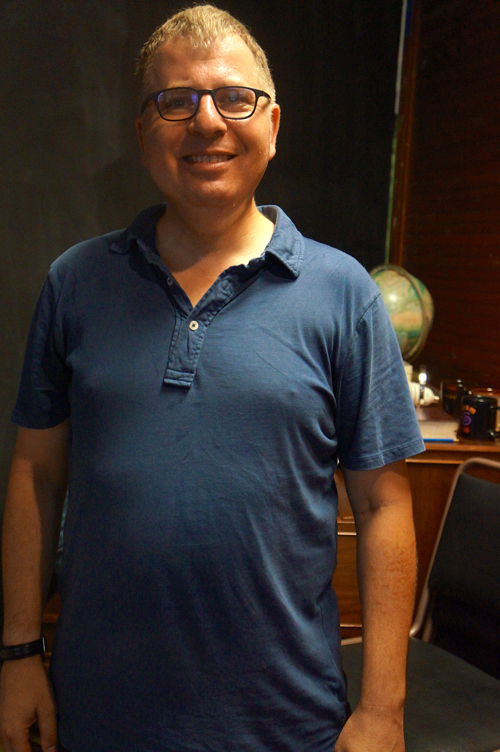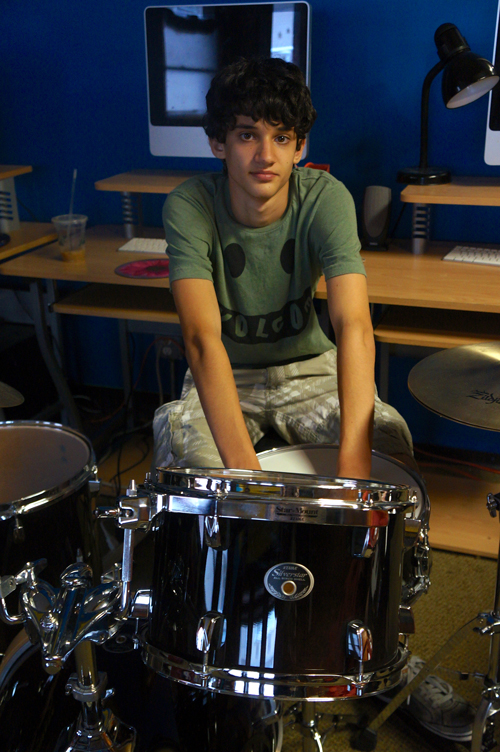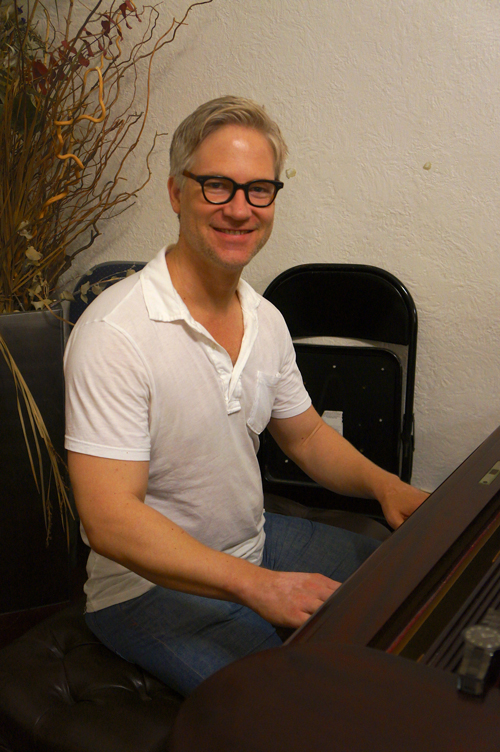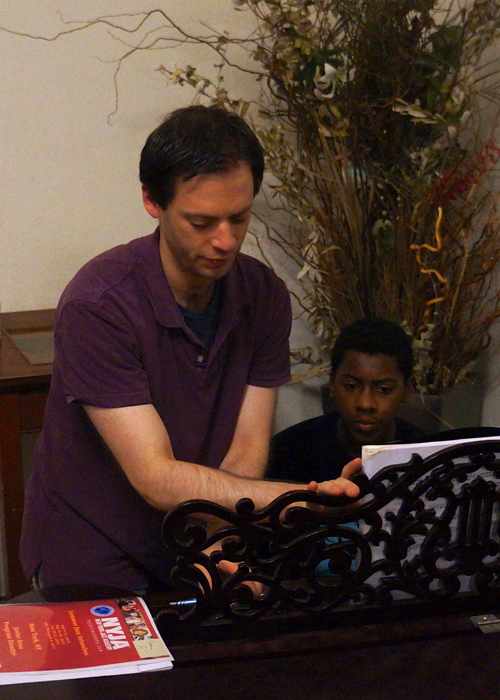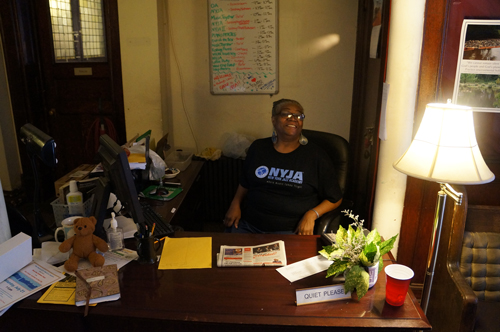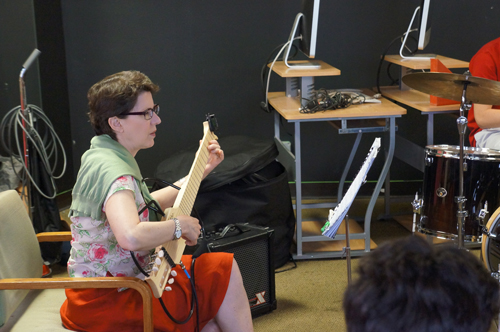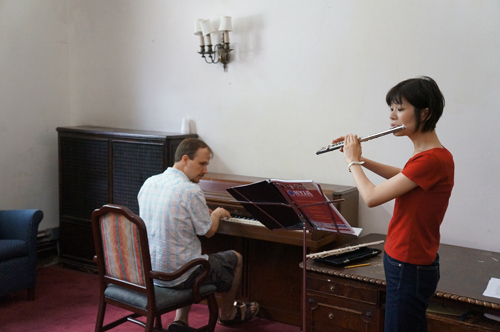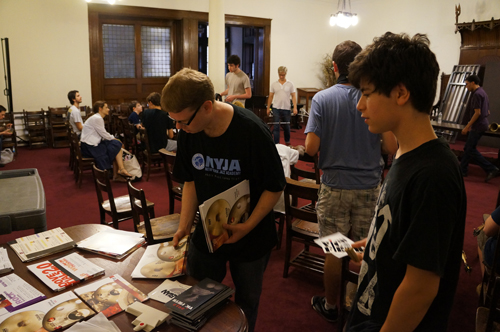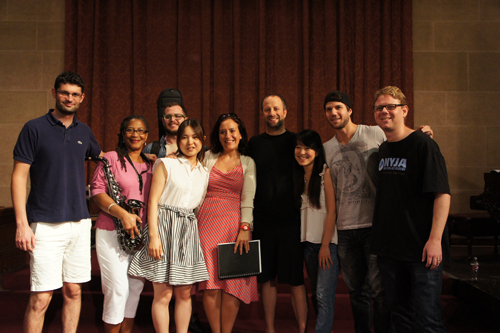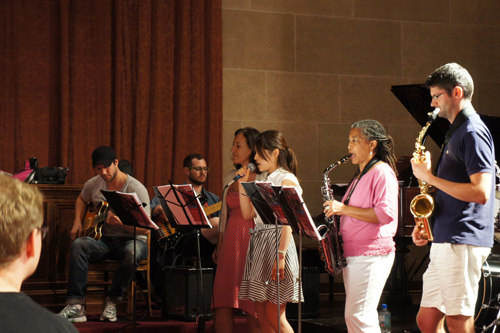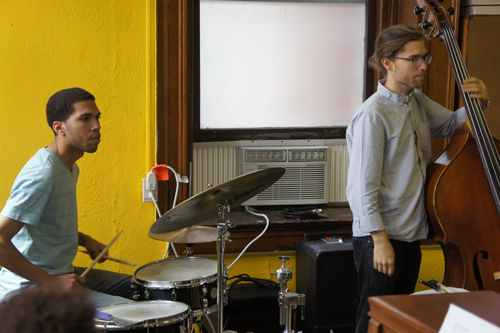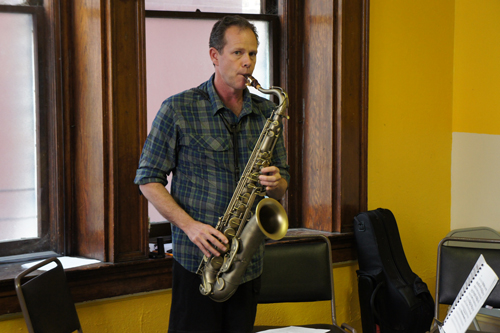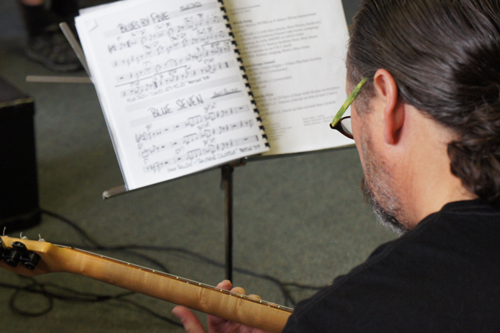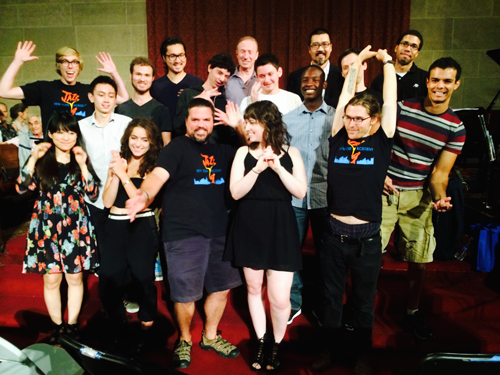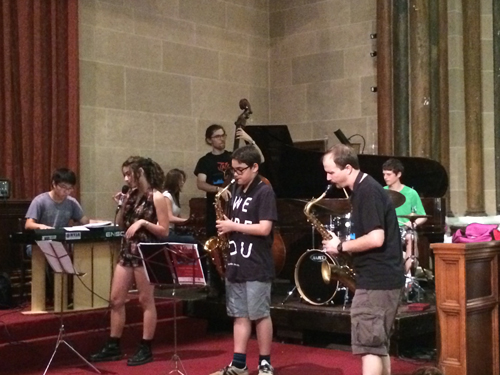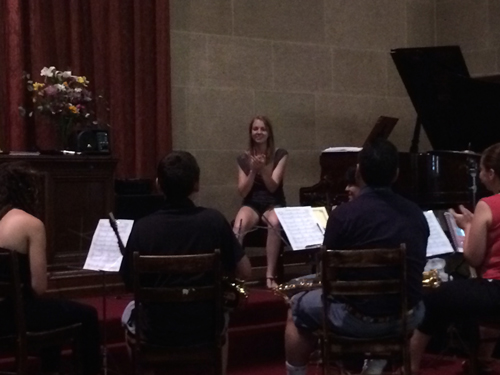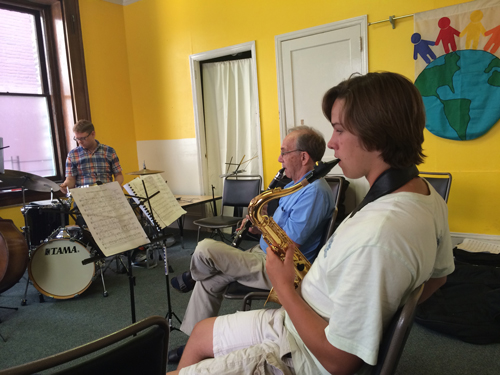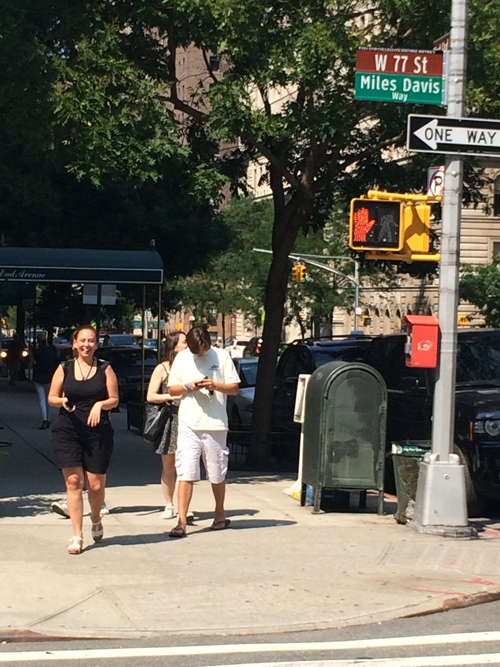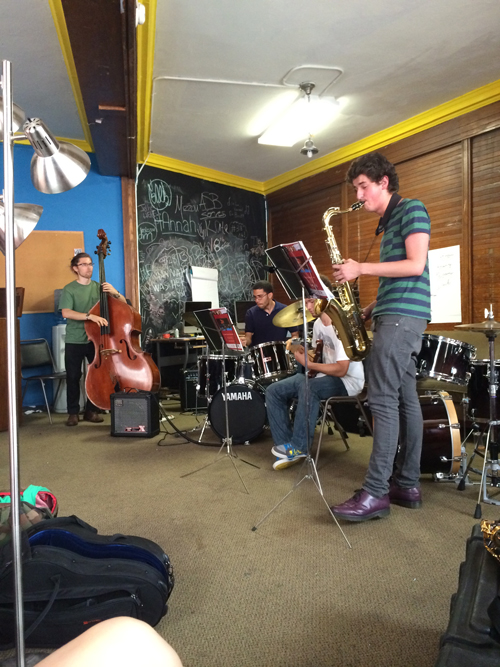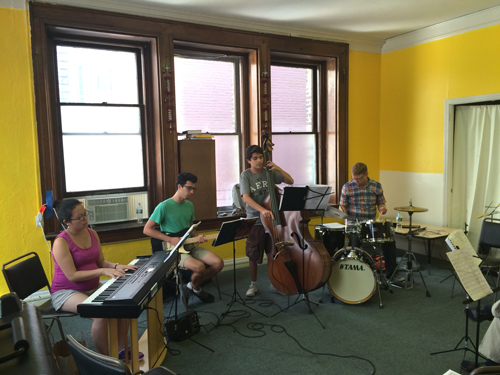07 Mar
Introduction
New York Jazz Academy® Summer Jazz Intensives offer an enriching musical experience unlike any other. In a nutshell, you will not find a more engaging, dynamic and attentive summer jazz workshop or program. What follows are some differentiating aspects of our summer jazz camp. We hope it will also help clarify what to expect from your summer stay in NYC.
Watch the Video
A completely personalized experience
Your personalized experience starts long before the program begins, when you first apply and are guided through a preliminary assessment process that helps assure an accurate placement for you throughout your stay. You are sent materials to help you prepare for your summer, and you are kept informed on what to expect from the program. Once you arrive at the NYJA Summer Jazz Intensives, you are greeted individually by teachers and staff, who guide you through a brief orientation. Your week has already been tailored to meet your needs by our planning team, and everything is in place for your arrival, including a customized schedule that outlines exactly where all your classes, lessons, and ensembles are held, in addition to provided course material, published and ready to download for your enjoyment.
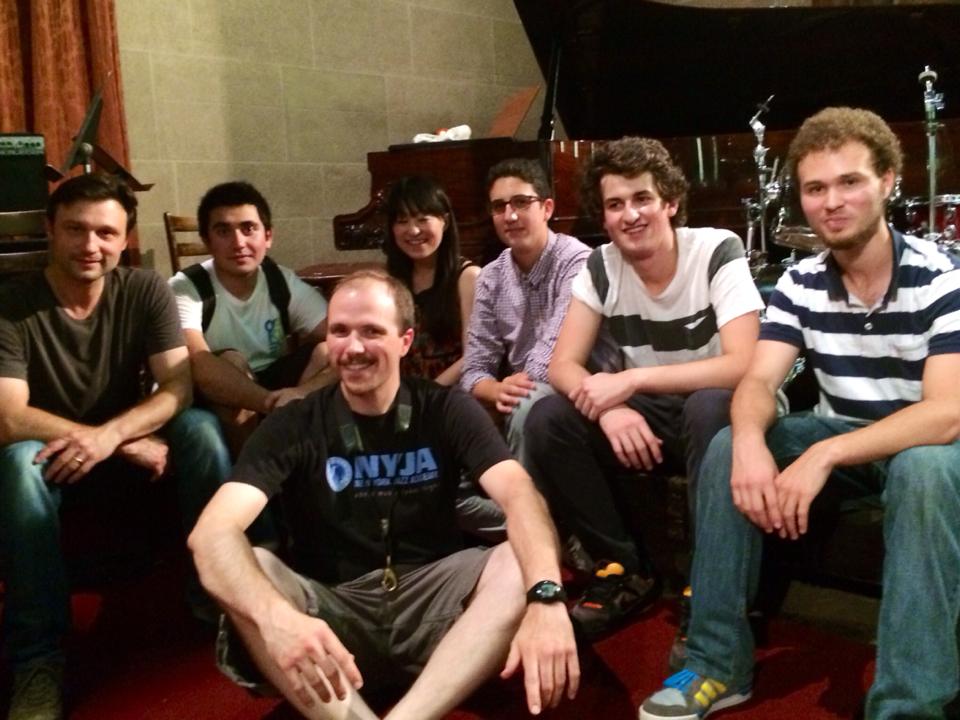
Excitement and diversity
What makes New York Jazz Academy classes special? In part, it’s the excitement and energy of the students, who come from all over NYC, the U.S., North and South America, Europe, Asia, and Africa. Teen students feel right at home with other teens, and adults feel right at home with other enrolled adults. NYJA tracks beginners separately from more advanced players, helping each player maximize potential growth.
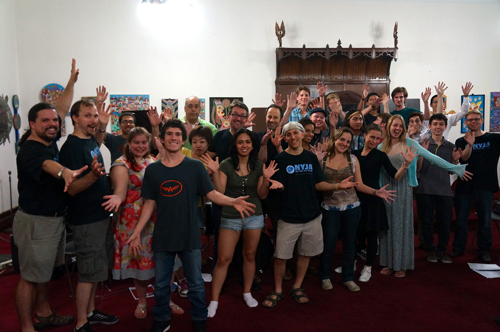
World-class faculty
It’s also the teachers, who are all “A-list” NYJA faculty (we don’t use teaching assistants, etc.). These are teaching artists who are deeply involved in the NYC jazz scene and are devoted to making your summer stay memorable. Teachers have included pianists Adam Birnbaum and Dan Cray, saxophonists Michael Webster and David Engelhard, guitarists Tom Dempsey, Jostein Gulbrandsen, and Sten Hostfalt, trumpeters Peck Allmond and Dan Blankinship, vocalists Aubrey Johnson and Tammy Scheffer, vocalist and trombonist Ron Wilkins, bassists Matt Pavolka and Ron McClure, drummers Pete Zimmer and Brian Woodruff, and composer and bandleader Javier Arau, among many others.
Intimacy and personal attention
With NYJA, you are much more than a number. Core parts of your schedule include intimate lessons and tutorials. These range from lessons on your instrument to sessions with rhythm section players, where sometimes the faculty/student ratio is 2:1 (you read that right!). This is all essential to developing your artistry and gives you a chance to connect with your instrument in a meaningful way. Teachers are also readily accessible throughout the day and often hang out with students after camp and at evening concerts.
How many mentors help shape your music?
Class sizes are also quite small, to the point where students often find themselves in a small ensemble environment where they are fully immersed, playing and learning from with 2-3 NYC pros, all at the same time! Check out the photo below featuring a small ensemble rehearsal. Looks like a typical rehearsal, right? Not quite! Look closely and you’ll see the lead teacher in the foreground, but you’ll also see a guitar teacher helping the guitarist, and a third teacher about to give feedback to the pianist in the group! This happens to be an intermediate level ensemble, but this sort of personalized treatment is commonplace with every summer ensemble, from beginner through advanced.
A schedule built for success
The Summer Jazz Intensives schedule is designed to maximize your potential. Structured by the hour with just the right balance of routine and variety, you will find your day goes by quickly! Mornings are devoted to a combination of jazz theory, improvisation, applied jazz styles and vocal techniques classes. Midday is devoted to workshops specific to instrument, including rhythm section, vocal, and melodic workshops, sax and brass ensembles, and more. Early afternoon often offers personalized lessons and tutorials. Mid-afternoon is devoted to ensemble rehearsals and vocal coaching, and late afternoon is reserved for a different daily activity:
Sample core activities:
For vocalists:
11am jazz harmony/vocal tech/jazz styles
12pm improv workshop
1pm lessons/tutorials
1:30pm LUNCH BREAK (bring your own lunch)
2pm small ensemble & vocal lab class
4pm masterclasses/concerts (see below)
5pm end of day/optional outings (see below)
For instrumentalists:
11am jazz theory/harmony
12pm improv workshop
1pm lessons/tutorials
1:30pm LUNCH BREAK (bring your own lunch)
2pm small ensemble rehearsal
4pm masterclasses/concerts (see below)
5pm end of day/optional outings (see below)
Late afternoon/evening activities for all:
4pm Monday – Faculty concert
4pm Tuesday – Masterclass (various topics)
4pm Wednesday – Masterclass (various topics)
4pm Thursday – Masterclass (various topics)
3pm Friday – Final concert
Friday Wildcard schedule (tentative):
NYJA might move your Friday to a jazz club setting, hosting all activities and the weekly concert at Club Bonafide (212 E. 52 St. New York, NY 10022), a luxurious jazz club on Manhattan’s famous jazz road–East 52nd Street. You will be notified of this possible addition to your week(s) long before your program gets underway. Should we move, your day will start at 12pm (noon), when the club opens.
12pm masterclass
1pm ensemble dress rehearsals
3pm final student/faculty concert (friends and family are invited)
5pm end of week/optional outing (see below)
Sample evening outings (optional):
5:30pm-8pm Monday Classic NYC pizza dinner in Greenwich Village + visit to 55 Bar (jazz club)
5:15pm-6:45pm Friday Open jazz jam session at Club Bonafide
Integrated curriculum
Each week focuses intently on several core compositions from the jazz canon. Each class throughout your day integrates your repertoire, so you are studying seamlessly from class to class. This integrated approach to jazz education is a signature concept of NYJA, and one that has propelled our students to demonstrable success. The focus on learning through classic repertoire also enables every student to study for multiple weeks, seeing even greater results while reaching a more lasting understanding of jazz and jazz styles. Below are examples taken from the pages of actual lesson plans, featuring brief lessons for beginners, for more advanced players, and for select vocalists. While the real teaching in jazz comes from the feedback and shaping of this material, it helps immensely to be involved in a program where material is presented clearly and concisely.
Instrumental curriculum examples:
If an intermediate player is working on Brooks Bowman’s “East of the Sun”, for example, morning theory and harmony class will introduce fundamental harmonic and rhythmic concepts from “East of the Sun”, assuring that the student’s experience in jazz theory is immediately contextualized. Jazz styles and improvisation class will cover application of fundamental concepts that are necessary for performing “East of the Sun”. The student’s midday lessons and tutorials provide ample opportunity to address specifics on core repertoire, whether the focus ends up on sound and technique, improvisational concepts, or core ensemble concepts, worked out in an isolated setting. Afternoon ensemble gives all players the opportunity to apply themselves as they rehearse all that they have learned on “East of the Sun” and other repertoire being addressed that particular week.
Beginner material snapshot:
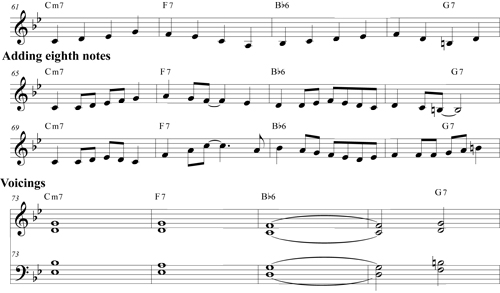
Intermediate material snapshot:
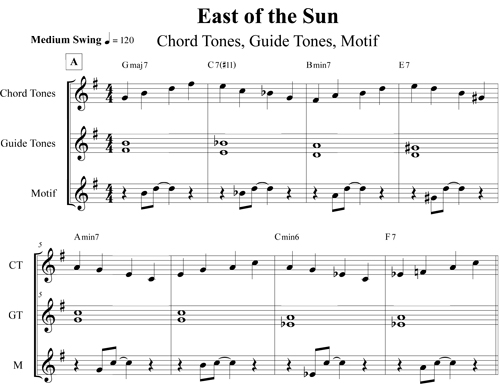
Vocal curriculum example:
While some parts of vocal jazz study overlap with instrumental study, some of what vocalists need to develop is quite different than what instrumentalists need. For instance, as a vocalist, you may be divide time between morning vocal techniques and theory/harmony class. Vocalists also benefit from daily improvisation and jazz styles classes, lessons and tutorial, and ensemble rehearsals, while afternoon work may be supplemented with vocal labs, which allow the vocalists to delve deeply into the lyrics of the piece, in addition to learning more about scat, vocal styles and delivery, and communicating with a band.
Total immersion with NYC concerts and activities!
Each camp day ends with a different taste of jazz, with assorted concerts, masterclasses on a wide array of topics (including music business, arranging/composition, free improv, active listening, jazz history, etc.) and typically include Monday and Friday field trips to Greenwich Village, 55 Bar, and Club Bonafide. While evening outings are optional, they provide a great opportunity to socialize in some wonderful settings. Friends and family are also invited to attend optional evening outings.
Finding the right fit for your summer
Not every camp is for everyone, and we hope you find the right match. If you are looking to immerse yourself in your music for a week or more this summer, then you’ve come to the right place. We are not a band camp, though. If you are looking for large ensemble experience throughout your week, you may be better served elsewhere, since our focus is on small ensembles and jazz styles for instrumentalists and vocalists.
If you are a complete beginner, we may not be right for you. We accept beginners on a case-by-case basis, so please inquire and we will give you an honest assessment. We offer a comprehensive track tailored for beginners, but if you are a complete beginner, we want to ensure you are not in over your head. If you are an adult or teen, a late beginner, intermediate, or advanced/pro musician, we have little doubt that you will feel right at home in our camps. If you have any questions regarding the match, let us know.
How to budget for summer classes
Budgeting for summer programs can be a challenge. We offer a program that is a bargain, given the depth of personalized instruction throughout the week and the fact that you will get a chance to immerse your in jazz while studying in NYC, the jazz capital of the world. We also offer a built-in tuition assistance program, in the form of the NYJA Annual Membership. This costs $199/yr., and it lowers all tuition by 20%. Membership drops a single week of Summer Jazz Intensives drops from $1,295 down to $1,036. Two weeks of tuition drops from $2,490 down to $1,992. For complete tuition rates and options, click here to browse all weeks and options.
Each student is responsible for room and board costs while attending our program, but fortunately, NYC offers meal options that can fit most budgets. Hotels nearby the Summer Jazz Intensives start at around $125/night, and even more affordable housing options may be available through internet listings such as AirBnb and Craigslist.
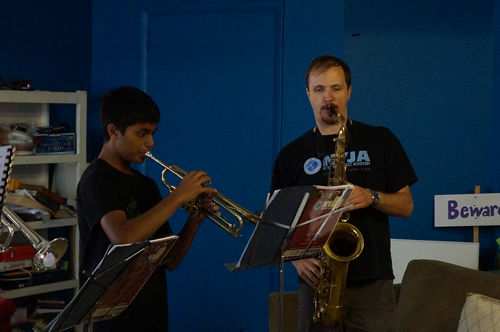
Closing remarks
We at NYJA have spent years building a better model in jazz education, and we are proud to share it with you. It’s time that you enter a program that will help you achieve your goals and dreams, all within a nurturing and supportive environment. At New York Jazz Academy®, you will find classes that are organized and thorough, all led by focused and helpful instructors. We make it a point that concepts are addressed in ways that ensure the material won’t just go over your head. Our staff is caring and empathic, and our community is engaged and inspiring. We take your musicianship very seriously and we thank you for devoting your time to jazz as an art form.
In closing, we hope you enjoy the following extra snapshots of people and music at the New York Jazz Academy® Summer Jazz Intensives. If you think the time may be right for you to start with NYJA, feel free to contact us to schedule a pressure-free consultation and assessment.

